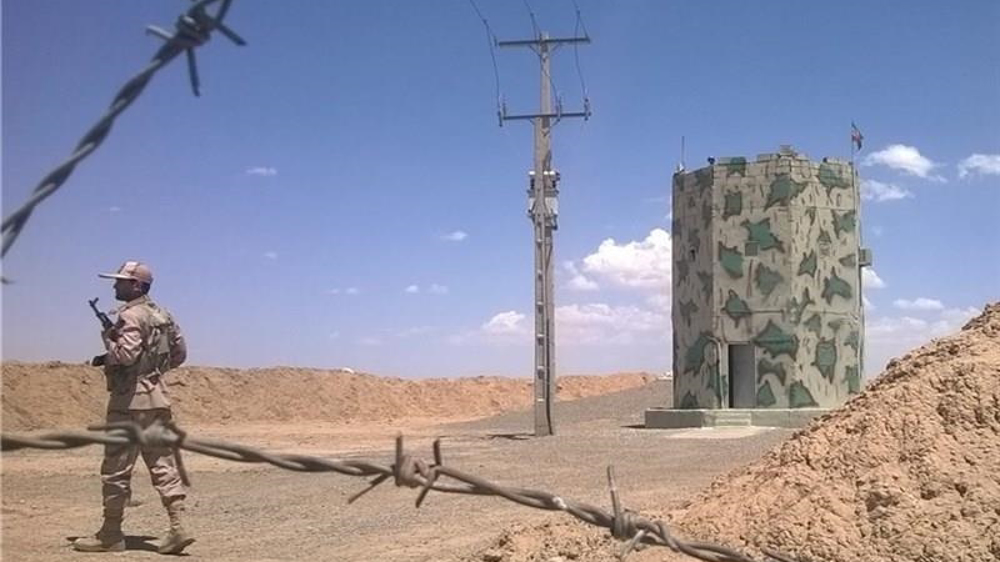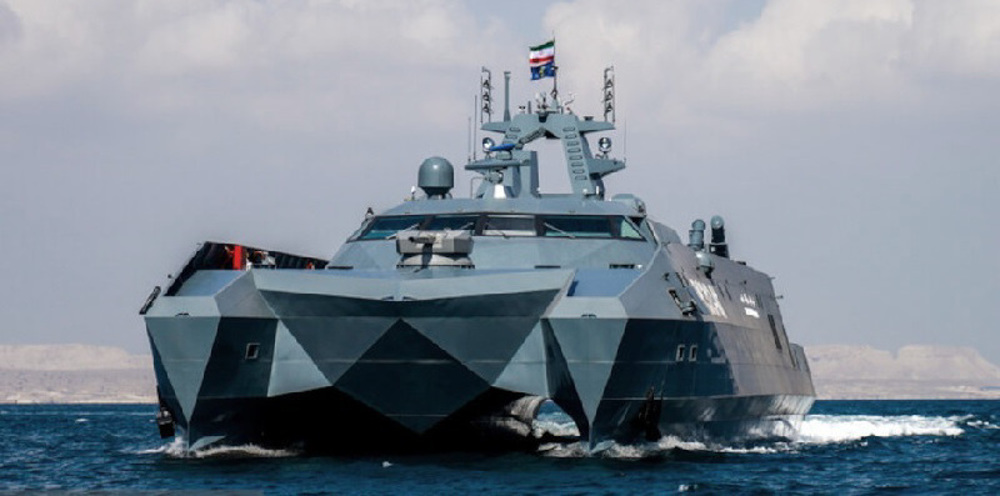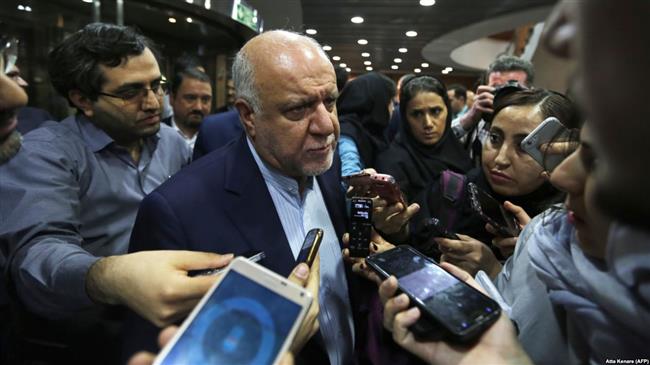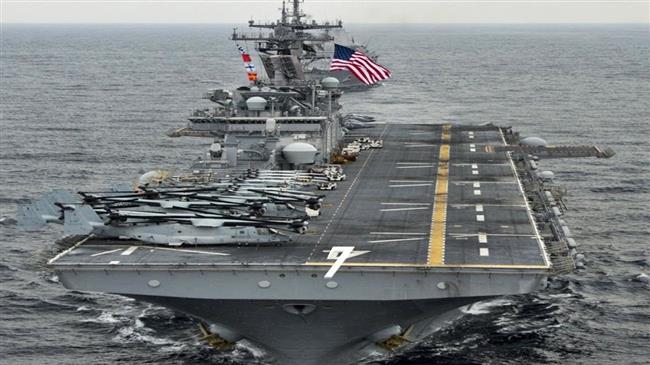Iran’s IRGC confirms holding drill in Persian Gulf
The Islamic Revolution Guards Corps (IRGC) says it held a military drill in the Persian Gulf this week with the aim of securing the strategic waterway and deterring potential threats posed by the enemies.
"The exercise was conducted with the aim of controlling and safeguarding the security of the international waterway within the framework of the IRGC's annual calendar exercises program," the force's spokesman Brigadier General Ramezan Sharif said Sunday.
IRGC chief Major General Mohammad Ali Ja'fari expressed satisfaction with the exercise and commended the naval and aerospace units which participated in the drill, Sharif said.
The IRGC chief "emphasized the need to maintain and enhance all-faceted defense readiness in order to secure the strategic waterway of the Persian Gulf and the Strait of Hormuz and to proportionately counter potential threats and adventurism by the enemies."
Last month, the IRGC said it was ready to act after President Hassan Rouhani said that if Washington pressed ahead with its goal of bringing Iranian oil exports down to zero, no oil would pass through the Strait of Hormuz.
“The Americans have claimed they want to completely stop Iran’s oil exports. They don’t understand the meaning of this statement, because it makes no sense for Iranian oil not to be exported, while regional oil exports continue,” he said.
His statements were interpreted as a hint at Iran's readiness to block the Strait of Hormuz, a major oil shipping route, in retaliation for any hostile US action against Iran.
The Strait of Hormuz at the mouth of the Persian Gulf provides the only maritime passage in the region to the open seas and is one of the world's most strategically important choke points.
US officials were quoted as saying Thursday that they believed Iran had started carrying out naval exercises in the Persian Gulf, apparently moving up the timing of the annual drills amid heightened tensions with Washington.
One US official was quoted by Reuters as saying that possibly more than 100 vessels, including small boats, were involved in the drills.
"We are monitoring it closely, and will continue to work with our partners to ensure freedom of navigation and free flow of commerce in international waterways,” said Navy Captain Bill Urban, the chief spokesman at Central Command, which oversees US forces in the Middle East.
US officials said the drills appeared designed to send a message to Washington, which is intensifying its economic and diplomatic pressure on Tehran after withdrawing from a landmark nuclear deal in May.
The first wave of sanctions, including a unilateral ban on Iran’s access to the US dollar and trade in gold and other precious metals, will kick in on Monday.
The second raft of sanctions, to begin on November 4, will target Iran's oil exports and its banking transactions.
Venezuela's government declares unwavering unity behind Maduro
VIDEO | Global outcry over Venezuela president abduction
Iran keeps wheat import subsidies despite cutting other food supports
Venezuelan military stands with acting president after US kidnapping of Maduro
VIDEO | Press TV's news headlines
VIDEO | Protesters in Toronto slam US kidnapping of Venezuelan president
Israeli troops detain, intimidate Palestinian toddler in West Bank
Iran says its investments in Venezuela face no major risk














 This makes it easy to access the Press TV website
This makes it easy to access the Press TV website